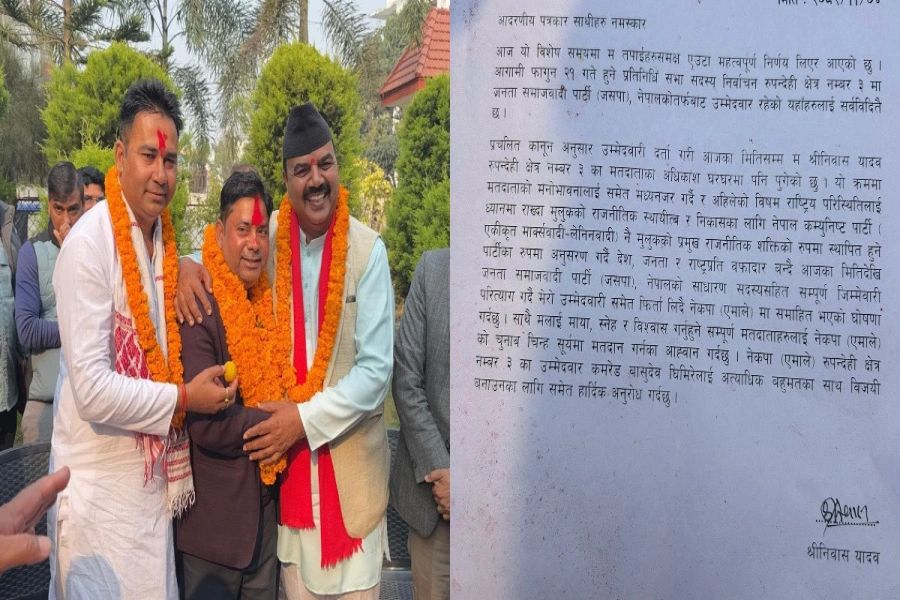Ruksana Kapali, a transgender activist at 18, recently graduated from high-school. While many of her age dream about travelling and settling abroad, she is a devout activist and hopes to strengthen awareness and acceptance of LGBTI community within the country. She points out few legal and social level issues that need to be addressed to ensure LGBTI-friendly Nepal. My City’s Shuvechchha Ghimire sat with Ruksana to know her more and about her involvements.
What are you currently involved in?
I work to manage Blue Diamonds Society’s (BDS) online portal, translate articles for the website and make the website Newari language-friendly. BDS was my primary support when I came out as a transgender, which is why I feel obligated to give something back. I also coordinate to produce an hour-long radio program called ‘Pahichhan’ through Thaha Sanchar, which works primarily to raise awareness across 50 districts in Nepal.
On a personal level, I write blogs that focus on LGBTI and ethnic issues, the latter because with mass migration and unplanned urbanization of the capital, Newari culture and ethnic values have faded and caused us to only localize in Basantapur and Ason. Did you know that when Ring Road was under construction, thousands of Newari-origin people got displaced without proper compensation? Since we are not talking about all these issues just yet, I believe I could be the voice for Newari population.
Celebrating the inspiring stories of women’s courage, resilienc...

Could you talk me through your journey as a transgender woman, before and after coming out?
I was born a male. However from very early age, it was apparent to me that I was different and had strong inclination towards feminine traits. I used to wear my mom’s makeup and clothes, a pastime that gave me immense pleasure. It was not long before I got caught for acting ‘too girly’. At home, one of my relatives slapped me one day and exclaimed that I ‘disgusted’ her. As my relatives’ lack of understanding and acceptance was not already enough, I was bullied constantly by my classmates in school, who called me all sorts of names and thrashed me around. My teachers would not understand and I had no one to talk to.
I came to terms with my identity as a transgender when news about Santosh Panta’s transgender daughter surfaced the media. I started looking stuffs up the internet and got acquainted with BDS which opened platform for me to meet like-minded people, who had undergone an incredible journey and sought changes on a national and communal level. Activities within BDS helped me come out, which I did by wearing a dress to my grandfather’s birthday party and changing my name to Ruksana. My family has always been supportive of me coming out, although I had to face my father’s wrath once for being a transgender woman.
To sum up, my journey has been the one of resilience. There are few hard-learnt lessons I treasure, for instance, it is often people close to you that bring you down; I have received immense support from outsiders and strangers while I have had to forgo few of my own relatives. Also, I have learnt to hide my identity unless it is absolutely essential for people to know– my college friends do not yet know that I am a transgender.
As of late, what do you think are most pressing issues for LGBTI community in Nepal?
Firstly, our community still lacks social awareness about LGBTI issues. Awareness programs so far conducted have not reached rural Nepal since they are often organized in cities and district headquarters. There are people who are yet to understand and accept LGBTI community.
Secondly, on a constitutional level, same sex marriage is the next milestone we are aiming at, although it seems a rather far-fetched idea at the moment. Few reasons why same sex marriage is not being actively endorsed at the moment is that LGBTI
community form a small group on a national scale and cannot invest enough to provide for constant lobbying that is required for us to demand for something that goes against social norms and few legal provisions, including family, marital and child adoption rights.
Finally, I believe we should focus on capacity development and empowerment programs of LGBTI people. Since we are stigmatized from the very beginning, we miss out on opportunities that others take for granted. Chances are, when we secure quotas for LGBTI community, our representatives might not be capable enough to hold the position, which is certainly something we would avoid at every cost.





































